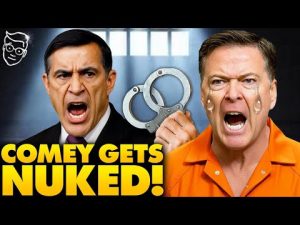**Elon Musk’s Audacious Pay Plan: A Leap of Faith or a Wild Goose Chase?**
In a bold move that has left the financial world scratching its head, Elon Musk has proposed a staggering $1 trillion pay package, aiming to reward himself for his efforts at Tesla. While the idea might sound like something plucked from a fantasy novel, it is very much rooted in reality, as shareholders surprisingly greenlit this astronomical sum. The mere fact that such a proposal made it to the ballot at Tesla’s recent annual meeting—where over 75% of the shareholders gave it a thumbs up—has raised eyebrows and sparked debate among investors and analysts alike.
On the surface, the reasoning for this eye-popping compensation might seem logical. Shareholders believe in the magic that is Elon Musk, convinced he can once again pull a rabbit out of a hat and transform Tesla’s fortunes, which are currently facing some bumps in the road. With electric vehicle (EV) sales dipping and competition on the rise, Musk’s defenders argue that only his unique brilliance can navigate Tesla through these turbulent waters. They point to his plans involving AI-driven robo-taxis and humanoid robots as proof that the genius is still very much at work.
However, some shareholders are less than thrilled with this idea. Notably, the likes of Ross Gerber, a wealth management CEO who once touted Musk as a visionary, have voiced significant concerns. As Musk juggles five businesses—including a new AI startup—critics argue that his attention seems divided. They question whether Musk can balance his multiple ventures while also rekindling Tesla’s waning sales, particularly when the company’s market presence is already under siege by fierce competitors. Some naysayers have remarked that the faithful belief in Musk as the “chosen one” may not be grounded in reality, suggesting that his promised innovations are more fantasy than plausible plans.
Tesla’s current sales figures tell a somewhat sobering tale. Despite a slight increase in third-quarter EV sales, largely due to a temporary spike from the cessation of a federal tax credit, overall sales have dipped. Some estimates predict further declines, adding to the urgency of the situation. In key markets such as California and Europe, Musk’s controversial political leanings appear to have hindered Tesla’s brand appeal. Meanwhile, in China, fierce local competitors are making inroads and snatching away Tesla’s former customer base, throwing a wrench into what was once a profitable venture.
Despite the sky-high valuation of Tesla stock, which trades at over 300 times projected earnings, skeptics like Gautam Makunda argue that this valuation hinges on attributing almost magical powers to Musk. They point out that Tesla is no longer the undisputed champion of the self-driving car market, a title now contested by other companies with more proven technology. As enthusiasm around Musk’s plans wavers and shares soar, many investors find themselves at a crossroads, torn between faith in the maverick entrepreneur and practical concerns about Tesla’s future.
As the dust settles after the shareholder vote, one thing becomes clear: while Musk’s bold vision captivates some, many stakeholders are calling for a more grounded approach. They want a return to the principles that initially attracted investors—sustainable energy and innovative transportation solutions—rather than veering off into unproven territory. Whether Musk can realign with the original mission or will continue to pursue his ambitious—and sometimes wild—fantasies remains to be seen. The coming months will be critical for Tesla, and shareholders are keenly watching to see if Musk can truly deliver the magic he promises or if it all turns out to be just an elaborate mirage.







